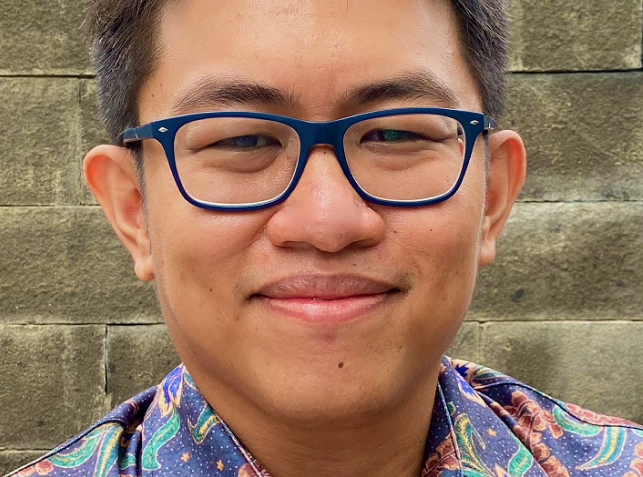
Jahen Rezki

Jahen Rezki is the Head of the Macroeconomics and Political Economy Research Group at the Institute for Economic and Social Research (LPEM-FEB UI) and Lecturer at the Department of Economics, Universitas Indonesia. He previously worked as an Associate Lecturer at the University of York, UK.
His research interests lie in the areas of Development Economics, Political Economy, Economics of Media, and Applied Macroeconomics. In particular, Jahen is interested in investigating the role of institutions and information on Economic Performance.
Follow Jahen on
Website
Follow Jahen on
Website
Jahen Rezki is the Head of the Macroeconomics and Political Economy Research Group at the Institute for Economic and Social Research (LPEM-FEB UI) and Lecturer at the Department of Economics, Universitas Indonesia. He previously worked as an Associate Lecturer at the University of York, UK.
His research interests lie in the areas of Development Economics, Political Economy, Economics of Media, and Applied Macroeconomics. In particular, Jahen is interested in investigating the role of institutions and information on Economic Performance.
In their own words…
IEA: Your work is in the intersection of political economy, development, and labor markets, with focus on Indonesia specifically. How did you get interested in these topics?
Jahen: I was born and grew up in Indonesia. Growing up in a developing country, I have been exposed to many structural problems around me. For example, I can see people who are living in poverty that cannot afford their basic needs in many areas. Moreover, there is also a huge variation in terms of economic activities between Java and outside Java. Thus, it makes me wonder what the key driver for this heterogeneity would be.
Related to the political economy, Indonesia has been democratized since the fall of President Suharto. It makes me interested to study political economy, especially in Indonesia. I have many questions related to the role of political parties in the country, what is the impact of improving local state capacity, the relationship between political competition and policymaking, and many others.
Finally, even though the labor market is not my main interest, I guess the question of how to improve people’s quality of life through decent jobs is also another interesting topic to be investigated. I think many of my works on the labor market have grown due to my consultancy work in helping the Ministry of Development Planning, the Republic of Indonesia in designing the roadmap for achieving Sustainable Development Goals (SDGs), especially related to Goal 8 Decent Work and Economic Growth.
IEA: Can you tell us a bit about your research on labor markets and social mobility in Indonesia. What have you learned from your studies?
Jahen: The main motivation for this study is there has been a lot of research investigating intergenerational mobility, especially in Indonesia. We want to understand how living standards in Indonesia have improved in the past twenty years which has allowed millions of households to break free from poverty. We find that the dynamics of intergenerational mobility in Indonesia have been quite heterogenous, but in general, there is a trend in welfare improvement. Our study suggests intergenerational mobility among the poorest and most vulnerable people. It reflects the success of children in climbing above their parents on the economic ladder. In particular, we find high mobility among the bottom 40 percentiles, which indicates that upward mobility is persist and is quite substantial among those who need the most.
IEA: Researchers from developing countries sometimes face serious obstacles in accessing research networks in advanced countries. Would you have some advice for younger scholars?
Jahen: I absolutely agree with this argument. Especially after coming back to Indonesia, it is very difficult to extend international networks. Moreover, scholars from developing countries have limited access to research grants, academic conference—which is always conducted in western or developed countries, and access to frontier knowledge. What I would suggest to younger scholars, especially from developing countries is to pursue graduate study abroad. Keep presenting your research at the academic conference and maybe during your Ph.D. period, try to also publish your research and collaborate with your advisor and fellow Ph.D. students. After finishing your study, it is also important to keep in contact with them and it would be great to continue doing research with them.